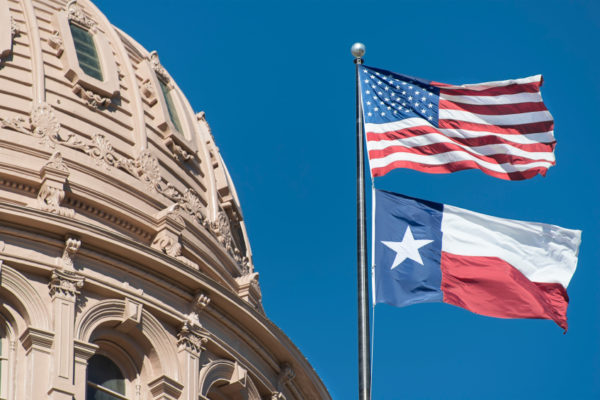The news headlines across the state proclaiming record voter turnout even amid partisan wrangling over voting rules should not distract from the fact that Texas consistently places in the bottom tier of state-level voter turnout.
Recent polling illustrates that the politicization of voting and elections has led to an indefensible consequence: widespread distrust in the voting system and even in the outcome of the upcoming presidential election among Texas voters. Although President Donald Trump bears at least some blame for the decay in Texans’ trust in the electoral system, a generation of Texas leaders also played a role — and it will be up to them to rebuild trust when the election is over.
The signs of Texans’ lack of trust in voting and elections are clear. In the October University of Texas/Texas Tribune Poll, a majority of Texas voters were either unsure whether they could trust the results of the presidential election, or outright said that they would not. Democrats were only slightly more confident than Republicans that the American people would trust the results of the presidential election (50% to 46%), and only slightly more willing to say that they would personally trust them, regardless of who wins — 45% to 39%.
The results from this latest poll starkly portray the continuing degradation of trust in the democratic process. This after 20 years of ever-escalating partisan conflict over voting and election regulation and elected officials making dubious claims about the prevalence of voter fraud. Democrats and Republicans now view the voting system through two entirely different sets of lenses though with different bases in fact, given the shortage of evidence supporting claims of widespread and consequential voter fraud.
In that same October survey, a majority of Republican voters said that ineligible people voting, people voting multiple times, and votes being counted inaccurately were “extremely serious” problems in the upcoming election. Among Democrats, a majority said that eligible voters being prevented from voting and foreign election interference were “extremely serious” problems.
Texas attitudes have been conditioned by more than loose talk of “rigged elections.” The road to the commencement of voting for the 2020 general election in Texas has been a particularly rough one, buffeted by predictable efforts by the majority party to minimize the vote of groups likely to cast ballots against it. The pandemic has led to increased calls for more flexibility — and in these times, safety — in choosing how to cast a ballot. Gov. Greg Abbott extended the early voting period and allowed mail-in votes to be cast in person to accommodate the public health crisis, but he has fought against almost all other efforts to ease voting.
The merciful end of 2020 might lead to a set of new opportunities in 2021. Regardless of the outcome of the election, the new year will bring yet another legislative session beset with even more political uncertainty than that which defined the 2019 session — and much more fiscal scarcity.
It will be a good session for finding things to do that voters notice but that don’t cost much. The more competitive political system emerging in Texas provides an opportunity for the Legislature to both expand access to the polls and provide some measure of increased election security — something of an old-school legislative horse trade.
Admittedly, with no statewide elected officials subject to replacement in 2020, it’s an unlikely prospect that Republican incumbents will create more uncertainty for themselves in 2022.
But reforms would bolster trust in the system, which in the end benefits minority parties just as much as it does majority ones — a fact partisans on both sides should consider in a Texas neither as red as it once was, nor likely to be entirely blue in the foreseeable future.
Jim Henson is director of the Texas Politics Project at The University of Texas at Austin.
Joshua Blank is manager of polling and research at the Texas Politics Project at The University of Texas at Austin.
A version of this op-ed appeared in the Houston Chronicle, Austin American-Statesman, MSN, Lubbock Avalanche-Journal, Abilene Reporter-News, Waco Tribune Herald, and the San Antonio Express-News.




